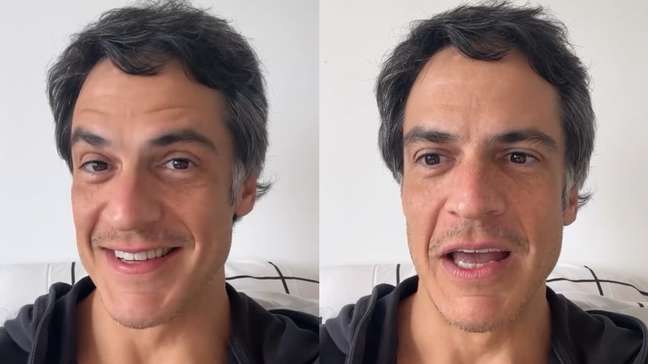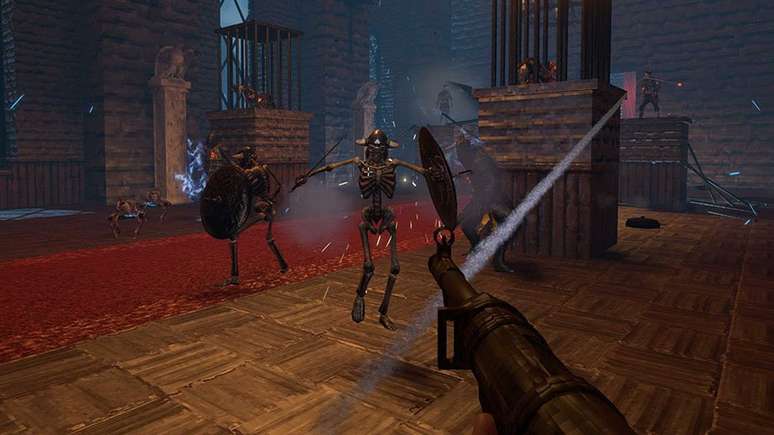An admirer of Brazilian music, Samara Joy dispenses with elitism in jazz and bets on youth
Samara Joy made its debut on Brazilian soil in the C6 Fest, which took place in São Paulo and Rio de Janeiro in May of this year. With one of the most sought-after shows at the Ibirapuera Auditorium, the 23-year-old singer showed that jazz still has its audience, but can charm even more people.
In an interview with Rolling Stone Brazil backstage at the festival, Samara reflected on his (still short, but highly praised) career, his first visit to South America, and the discovery of bossa nova. “It’s wonderful that people support me. I am so grateful that they like what I do,” she stated.
During the show, the artist even sang in Portuguese, honoring some of the composers and interpreters who marked her musical formation. “No more longing,” in Joao GilbertoIt is “Fleur de Lis,” in djavan, were part of the setlist: “I found Brazilian music a little late. I was at school, and one of the subjects we needed to study was Brazilian music. It lasted six months or a year. Every week, [aprendíamos] a new song. That was my introduction to that world: playing with my peers, listening to the tracks over and over and over again, trying to get the phrasing in tune. It was very intriguing. I bring it with me. In the end, it’s never too late for something.”
Samara Joy he also took a while to find jazz, but sees the fact as an indication that other young people can approach the genre. Dismissing the elitist aura that took over the songs marked by inventive harmonies and improvisations full of twists, the artist claimed: “People don’t need to pass a test to say they like jazz or have a lot of money. [risos]. It’s affordable. There are also a lot of comments like, ‘We need to save jazz…’ Just show people the music, bring instruments to schools, invite to a concert… just show it’s there.”
Check out the full interview by Samara Joy The Rolling Stone Brazil:
Rolling Stone Brazil: What was it like to play in Rio de Janeiro?
It was really, really cool. I was very happy to be here [risos]. When we arrived in Rio de Janeiro… playing there was incredible. I loved the energy.
At 23 years old, how do you feel having conquered a good fan base in the country?
It’s too crazy! I never thought I’d be able to say that about myself so soon. It’s wonderful that people support me. I am very grateful that they like what I do.
I would like you to talk a little more about your relationship with Brazilian music. How does it feel to play in the country that originated some of your inspirations?
It’s crazy to think about it. I found Brazilian music kind of late. I was at school, and one of the subjects we needed to study was Brazilian music. It lasted six months or a year, we learned Brazilian songs. Every week a new song. That was my introduction to that world: playing with my peers, listening to the tracks over and over and over again, trying to get the phrasing in tune. It was very intriguing. I bring it with me. In the end, it’s never too late for something [risos].
How is it to see jazz, which you also claimed to have discovered “late,” reaching the ear of other young people through your music? Is weird?
It’s weird, definitely, but it’s encouraging. People say so much that jazz “is dead, it’s old music, blah, blah, blah…” and I don’t believe it. If I heard it when I was 18 and loved it, that means there’s still an audience for the genre. People don’t need to pass a test to say they like jazz or have a lot of money. [risos]. It’s affordable. There are also a lot of comments like: “We need to save jazz…” Just show people the music, bring instruments to schools, invite to a concert… just show that you’re there. With social networks, everyone has contact with many types of music, which I think is incredible, but jazz is not always part of it, people don’t remember it. Sometimes it’s that simple, not everyone knows. It’s cool that people listen to my music and notice that.
You are an important voice for this jazz generation.
I’m just one of them.
Source: Rollingstone
Earl Johnson is a music writer at Gossipify, known for his in-depth analysis and unique perspective on the industry. A graduate of USC with a degree in Music, he brings years of experience and passion to his writing. He covers the latest releases and trends, always on the lookout for the next big thing in music.







